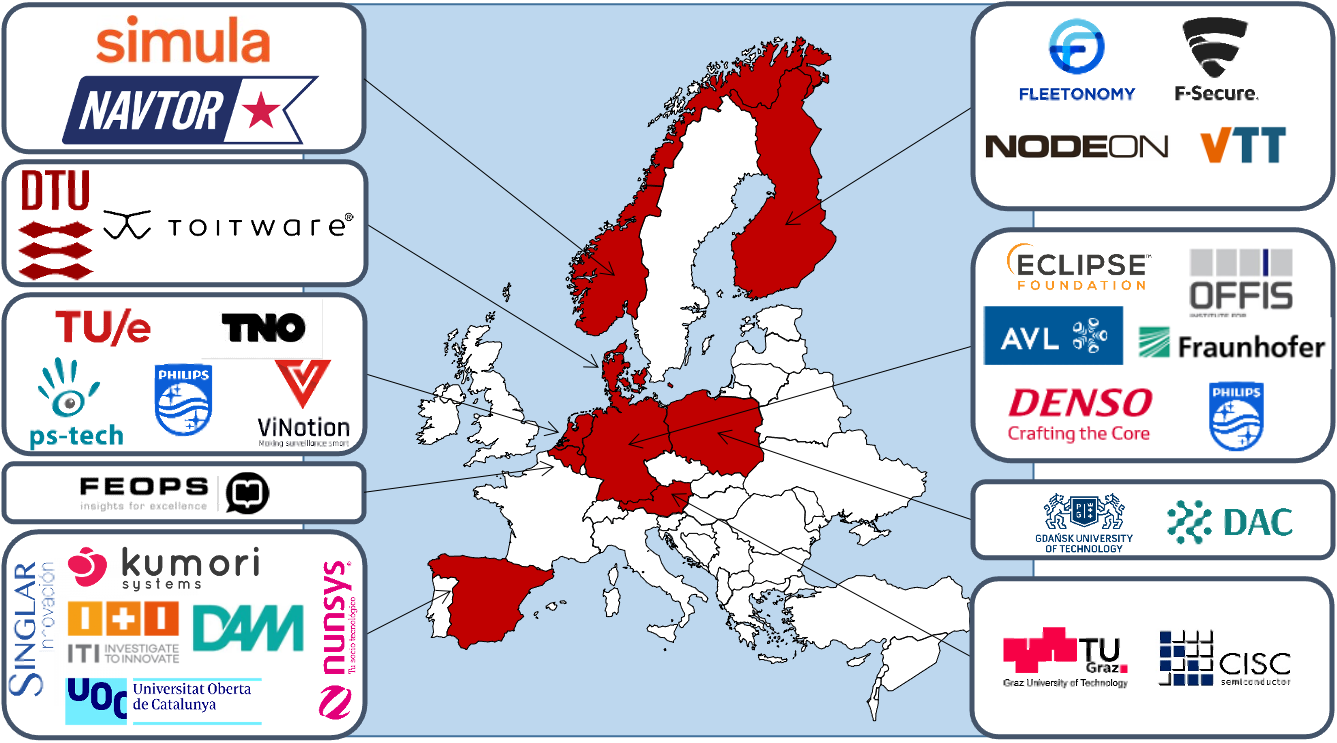Darmstadt, Germany — July 7, 2021 — A European consortium of 30 partners from the Netherlands, Finland, Germany, Poland, Austria, Norway, Spain, Belgium, and Denmark has launched TRANSACT, an ECSEL Joint Undertaking funded by the European Union’s H2020 Framework Programme. The Eclipse Foundation, a leading global open source software foundation and the largest open source organization in Europe, will support TRANSACT with services, including project communications, open source community building, and IP management.
In June 2021, the TRANSACT (Transform safety-critical cyber-physical systems into distributed solutions for end-users and partners) ECSEL JU was kicked off under the leadership of Philips.
The goal of TRANSACT is to develop a universal, distributed solution architecture for the transformation of safety-critical cyber-physical systems, from localised stand-alone systems into safe and secure distributed solutions. Cyber-physical systems (CPS) are all around us, but due to today’s technical limitations and the possibility of human error, we cannot yet tap into their full potential. A seamlessly integrated and connected architecture for such systems, via edge and cloud technologies, could overcome these limitations. To that end, TRANSACT will research distributed reference architectures for safety-critical CPS that rely on edge and cloud computing, ensuring that performance, safety, security, and privacy of data are guaranteed.
The project brings together large companies, SMEs, research institutes, and universities from nine European countries that will demonstrate the capabilities of TRANSACT through real-world use cases in five relevant business areas:
- Remote operation of autonomous vehicles for navigating in urban environments
- Critical maritime decision support enhanced by distributed, AI-enhanced edge and cloud solutions
- Cloud-featured battery management systems for electric vehicles
- Edge-cloud-based clinical applications platform for image-guided therapy and diagnostic imaging systems
- Critical wastewater treatment decision support enhanced by distributed, AI-enhanced edge and cloud solutions
“We are on the pathway of digital transformation, however safety-critical applications are still deployed as standalone systems because it’s the only way to ensure system’s safety, security and performance simultaneously”, says Sasa Marinkovic, Coordinator of the TRANSACT project. “TRANSACT will extend the existing edge/cloud technologies in order to support safety-critical applications and will enable a transition from standalone systems to an ecosystem of digital propositions”.
“Open source software is one of the key building blocks to achieve wide adoption and build trust in highly-distributed cyber-physical systems”, says Philippe Krief, Research Relations Director at the Eclipse Foundation. “We are thrilled to support this path and support the growth of a vibrant TRANSACT ecosystem.”
The Eclipse Foundation is responsible for the project communication and will help the consortium to turn the innovative project outcomes into successful and sustainable open source software with a vibrant community of developers and early adopters.
More information about the TRANSACT project is available at transact-ecsel.eu, on Twitter @TransactProject, and on LinkedIn.
About the Eclipse Foundation
The Eclipse Foundation is a European-based international not-for-profit organization supported by over 330 members, including industry leaders who value open source as a key enabler for business strategy. The Eclipse Foundation provides our global community of individuals and organizations with a mature, scalable, and business-friendly environment for open source software collaboration and innovation. The Foundation is home to the Eclipse IDE, Jakarta EE, and over 400 open source projects, including runtimes, tools, and frameworks for a wide range of technology domains such as IoT, edge computing, automotive, geospatial, systems engineering, and many others.
To learn more, follow us on Twitter @EclipseFdn, @ResearchEclipse, LinkedIn or visit eclipse.org.

